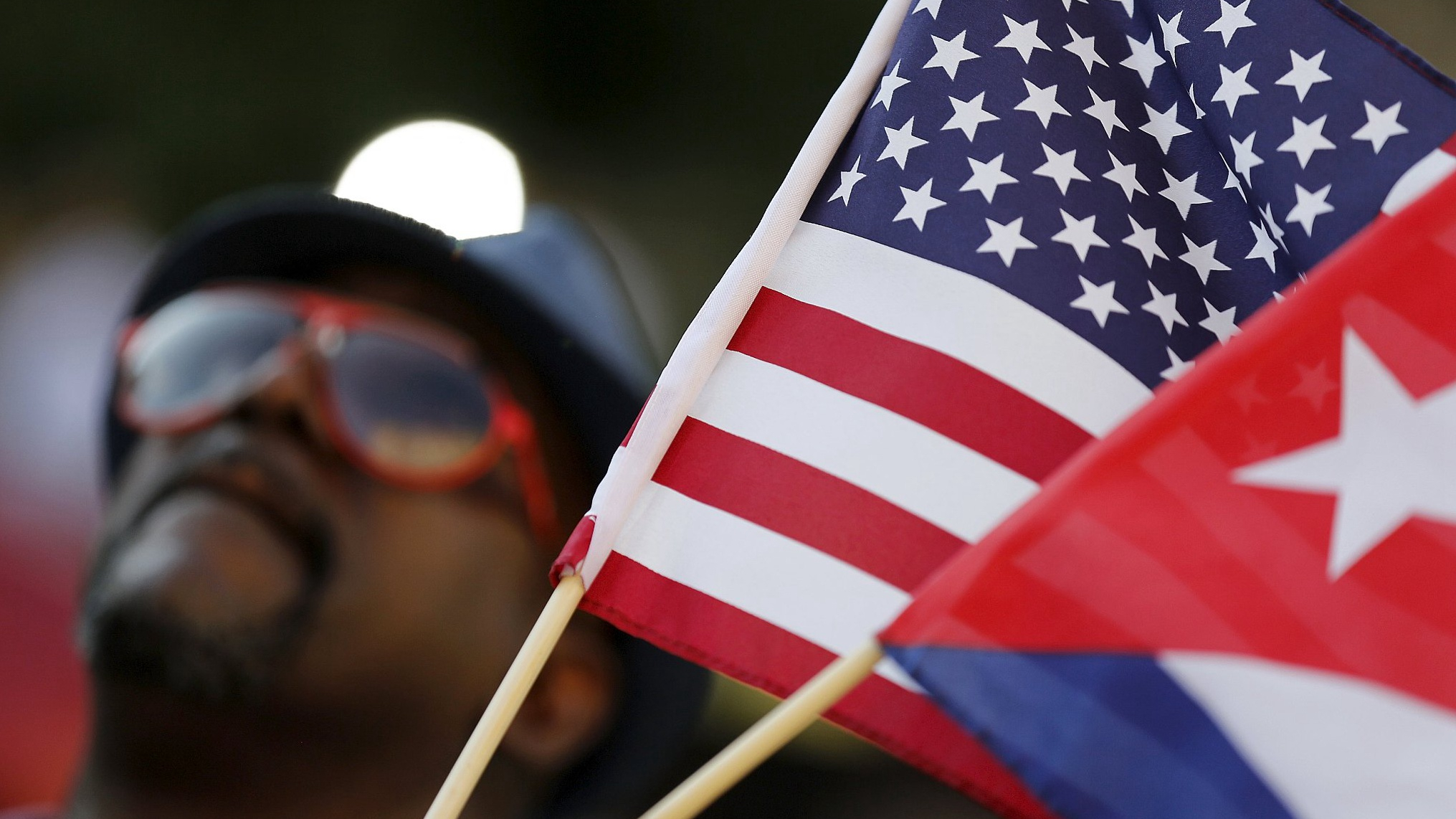Tucker Carlson Suggests Biden Will Hijack Hungary’s Election In Cozy Orbán Interview

By Cristina Cabrera
|
August 6, 2021 11:06 a.m.
Fox News host Tucker Carlson, who traveled to Hungary this week to meet with far-right Hungarian Prime Minister Viktor Orbán, is now floating the notion that President Joe Biden might just meddle in Hungary’s election to prevent Orbán from being reelected.
During a softball interview with Orbán, Carlson noted that Biden called the prime minister, who has touted “illiberal democracy” as his leadership approach, a “thug.”
“Are you worried that there will be international interference in your election in Hungary?” Carlson asked Orbán.
“That will happen,” the Hungarian leader responded. “We’re not worried. We’re prepared for that. Obviously the international left will do everything [that] they can do, probably even more, to change the government here in Hungary. We are aware of that.”
“When the president of the United States describes you as a totalitarian thug — it’s a very serious thing to say about somebody, I would note — that suggests why wouldn’t the Biden State Department work to prevent you from being reelected?” Carlson opined.
“I think sooner or later, the Americans will realize that issues in Hungary must be decided by the Hungarians,” Orbán said.
Carlson’s leading questions echoed the rhetoric flowing from ex-President Donald Trump on the 2020 U.S. elections, which Trump continues to falsely claim was “stolen” from him (a narrative Carlson has boosted on his program).
The interview offered glowing spin to Orbán’s hard-right leadership, which has led to an alarming backsliding of democracy in Hungary.
Watch Carlson and Orbán’s discussion below:
Cristina Cabrera (@crismcabrera) is a newswriter at TPM based in New York. She previously worked for Vocativ, USA Today and NY1 News.
The far-right’s ties to Orbán date back at least a decade, and were cultivated by top strategists and lobbyists in the Republican Party, as well as leading figures on the religious right.

By Sarah Posner
This article is part of TPM Cafe, TPM’s home for opinion and news analysis.
This week Fox News’ Tucker Carlson has been anchoring his prime time program not from his network’s studios, but from the next best place for an aspiring autocrat: Budapest, Hungary. Carlson is there to speak at a far-right conference, glad-hand with its autocratic Prime Minister, Viktor Orbán, and convince his Fox News acolytes that patriotic red-blooded Americans should best set their gaze on the Danube instead of woke America.
Carlson is actually a latecomer to the American right’s love affair with Orbán, even though he shares common cause with the demagogue who has claimed Hungarians oppose immigration because they do not want their “own color, traditions and national culture to be mixed by others.” The American right’s love affair with Orbán dates back at least a decade, and was cultivated by top strategists and lobbyists in the Republican Party, as well as leading figures in the religious right.
In 2008, Orbán, who had served one term as prime minister from 1998 to 2002 and was plotting a return to power, retained the Republican political strategist Arthur J. Finkelstein, mentor to such luminaries as Roger Stone and Paul Manafort. In the United States, Finkelstein’s signature advice to clients was to adopt messages that would “polarize the electorate.” Two years later, Orbán was again prime minister. His Fidesz-controlled government promptly undertook a host of anti-democratic measures, including requiring media organizations to register with the government, eroding checks and balances, constitutionally mandating a “right to life” from the moment of conception, and defining marriage as between a man and a woman. The party also redrew parliamentary districts and changed the process for allocating parliamentary seats, further cementing its hold on power, and stacked the courts with loyalists. Along the way Orbán engaged in a relentless anti-Semitic campaign against George Soros, demonized immigrants, and closed Hungary’s borders.
Finkelstein reveled in that kind of divisiveness. In rare public remarks in Prague in 2011, the strategist enthused about strongmen on the rise around the world, exploiting the refugee crisis to manufacture anti-immigrant and anti-Muslim animus. “Anti-Muslim parties become important in developing coalitions for their governments,” he said, with a message of, “they’re taking our jobs. They’re taking away our way of life.” That kind of scapegoating, he said, “is creating an energy source around which these movements take place.” A political consultant’s job, said Finkelstein, is to tell people what they should know because “no one knows anything about anything,”
When Orbán and Fidesz won again in 2014, the Organization for Security and Cooperation in Europe lambasted the party’s “undue advantage,” including “the manner in which a large number of changes to the legal framework were passed, restrictive campaign regulations, biased media coverage, and the blurring of the separation between a ruling party and the state.” But Orbán, now increasingly emboldened to thumb his nose at the criticisms of his corrosion of democracy by the likes of the United States, the European Union, and NATO, openly declared, in 2014, his embrace of an “illiberal democracy.” He then hired another Finkelstein ally, former Florida Republican Congressman Connie Mack IV, as his lobbyist in Washington. Mack’s job, according to his disclosures under the Foreign Agents Registration Act (FARA) was to craft “political messages” to deliver to the administration, Congress and the media, to “have an influence on political decision making.” By 2015, Mack was one of the top paid foreign agents in Washington.
Orbán became the first foreign leader to endorse Trump; he praised “this resolute American presidential candidate” because he would jettison the American “policy of exporting democracy.” The Trump campaign’s top foreign policy advisor, his future Attorney General, Jeff Sessions, sent the Hungarian Ambassador to the United States, Réka Szemerkényi, a warm letter, describing Hungary as “a global beacon for the power of freedom, democracy, and human rights.” This was a sharp right turn from the administration of George W. Bush, which had been critical of Orbán during his first run as prime minister, and from the position of the late Senator John McCain, who in 2014 called Orbán “a neofascist dictator getting in bed with Vladimir Putin.”
Mack had done his job: to make Orbán appear to American audiences as a run-of-the-mill conservative under attack by liberals — using Orbán’s, and the American right’s, favorite scapegoat, George Soros. In a November 2017 appearance on “Blunt Force Truth,” a podcast hosted by former “Love Connection” host Chuck Woolery, Mack complained that Obama-era holdovers in the State Department were unfairly making life difficult for his client. “I wish our State Department would treat him more like a friend and an ally,” Mack told Woolery, “instead of some of these underlings attacking him for things that George Soros is making up.”
Right-wing media took up the theme of unfair criticism of Orbán. A 2017 Heritage Foundation column complained he had been “vilified in the mainstream media and formally rebuked by the EU” for opposing “the EU’s overly permissive migrant policy” and fighting against Soros’ influence. A Christian Broadcasting Network correspondent claimed Orbán “has been treated like a pariah in the Western media over its position on open borders, but Hungary’s leaders are smart enough to know that their national values will never please the global Left.”
In 2017 Orbán played host to the World Congress of Families, a natalist gathering organized by American religious right figures with their counterparts around the world. In a cover story in the far-right magazine “Chronicles,” Allan Carlson (no relation to Tucker), one of the founders of the World Congress of Families, questioned whether America could still be a “City on a Hill — With Transgender Toilets?” He praised Orbán’s “pro-family” policies, arguing “if we want to make America great again,” America should take a cue from Budapest.
In Orbán’s speech at the gathering, he claimed Hungary was experiencing declining fertility rates, but rejected immigration, because Hungary prefers a “renewal of our own resources.” After his 2018 reelection, Orbán recalibrated “illiberal” democracy to “Christian” democracy, presenting himself as the political and spiritual leader of “a new constitutional order based on national and Christian foundations.”
Tony Perkins, the influential president of the Family Research Council, which is an official partner of the World Congress of Families, has praised Orbán as “a strong conservative that has championed biblical values in Hungary.” His colleague, Peter Sprigg, told me in 2018 that Western media focuses too much “on some of these sort of procedural things” rather than on how Orbán “talks about defending Western civilization rooted in Christianity.” That is where, Sprigg said, “we see we have common cause with him.” It’s no surprise, then, that Tucker Carlson is the latest figure on the American right to embrace Viktor Orbán and the wreckage he has made of Hungary’s democracy.
Sarah Posner is a journalist and author of the book “Unholy: How White Christian Nationalists Powered the Trump Presidency and the Devastating Legacy They Left Behind.” She is currently a reporting fellow with Type Investigations and a journalism fellow at Recovering Truth.










